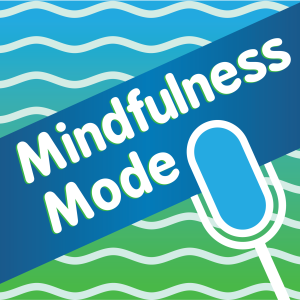
388 Total Heart Health With Renowned Physician-Scientist Dr. Robert H. Schneider
 2018-12-30
2018-12-30
Dr. Robert Schneider, MD, FACC is an internationally renowned physician-scientist-educator and leader in mind-body medicine and integrative medicine. Dr. Schneider received his MD from Rutgers University Medical School and did his postgraduate training in internal medicine and hypertension at the University of Michigan Medical School. Beginning in 1984, Dr. Schneider was one of the first physicians in the United States to practice, teach and research Maharishi AyurVeda, a scientific restoration of an ancient and comprehensive system of prevention-oriented natural medicine. The results of his studies have been published in 150 peer-reviewed articles, including those published by the American Heart Association, American Medical Association and featured in more than 1,000 television, radio, magazine, and newspaper reports, including ABC’s 20/20, CNN Headline News, the Discovery Channel, the New York Times, and Time magazine. He has been a consultant to the National Institutes of Health (NIH), Centers for Disease Control and Prevention, and the US Congress’ Prevention Coalition. Based on his groundbreaking research and clinical experience, he authored the popular book: Total Heart Health.
Listen & Subscribe on: iTunes / Stitcher / Podbean / Overcast / Spreaker / Spotify Contact Info- Website: MUM.edu
- Book: Total Heart Health: How to Prevent and Reverse Heart Disease with the Maharishi Vedic Approach to Health by Robert H. Schneider and Jeremy Z. Fields
- Maharishi Mahesh Yogi
- Oh, I'm much more stable. As I grow older and meditate longer, it's given me a centeredness deep within that I haven't had before that connects me to the larger. There's something greater outside of me I found inside of myself.
- During transcendental meditation, breathing naturally gets less by itself. A spontaneous effect of the mind becoming more quiet is that the body becomes more quiet. There are other yoga practices which involve manipulating the breathing, Pranayama they call it, or breathing exercises. That's a way to go. Rather than from the mind to the breath, to go from the breath to settling the mind, so that's complimentary. These Yoga asanas and Yoga breathing are certainly complimentary to meditation.
- Book: Total Heart Health: How to Prevent and Reverse Heart Disease with the Maharishi Vedic Approach to Health by Robert H. Schneider and Jeremy Z. Fields
- Book: Strength in Stillness: The Power of Transcendental Meditation by Bob Roth
- App: TM.org (a place to get started with Transcendental Meditation)
- Colleagues of mine are working in the school system in the San Francisco Bay area and there there's a very famous school project to bring meditation to lower socioeconomic and high stress school systems there.
- There's one school system which has had a very high rate of violence, bullying, shooting, knifing all that kind of school violence. And they have what they call a quiet time program where the children practice meditation. It's a few minutes in the morning and a few minutes in the afternoon, they practice this meditation or they could do whatever else they want quietly, but most of them practice meditation.
- They've documented lower rates of, these violent behaviors in the school. So those kinds of violent crimes are much less and other classroom behaviors, much more harmonious. And studies have been published on this.
- So from a scientific point of view, I'm impressed by those kinds of projects.
Do you want to become more calm, relaxed, peaceful, and content? If so, you can learn how by downloading this free 'Waves of Content' Meditation by Bruce Langford. Unlock the secrets of calm by downloading the meditation here at MindfulnessMode.com/wavesofcontent
More Episodes
 2022-06-12
2022-06-12
 4.4k
4.4k
 2022-06-08
2022-06-08
 4.3k
4.3k
 2022-06-05
2022-06-05
 4.3k
4.3k
 2022-06-01
2022-06-01
 4.4k
4.4k
 2022-05-29
2022-05-29
 4.3k
4.3k
 2022-05-25
2022-05-25
 4.4k
4.4k
 2022-05-22
2022-05-22
 4.4k
4.4k
 2022-05-18
2022-05-18
 4.4k
4.4k
 2022-05-15
2022-05-15
 4.4k
4.4k
 2022-05-11
2022-05-11
 4.3k
4.3k
 2022-05-08
2022-05-08
 4.4k
4.4k
 2022-05-04
2022-05-04
 4.4k
4.4k
 2022-05-01
2022-05-01
 4.2k
4.2k
 2022-04-27
2022-04-27
 4.7k
4.7k
 2022-04-24
2022-04-24
 4.7k
4.7k
 2022-04-20
2022-04-20
 4.6k
4.6k
 2022-04-17
2022-04-17
 4.5k
4.5k
 2022-04-13
2022-04-13
 4.6k
4.6k
 2022-04-10
2022-04-10
 4.7k
4.7k
 2022-04-06
2022-04-06
 5.4k
5.4k
Create your
podcast in
minutes
- Full-featured podcast site
- Unlimited storage and bandwidth
- Comprehensive podcast stats
- Distribute to Apple Podcasts, Spotify, and more
- Make money with your podcast
It is Free
- Privacy Policy
- Cookie Policy
- Terms of Use
- Consent Preferences
- Copyright © 2015-2024 Podbean.com


